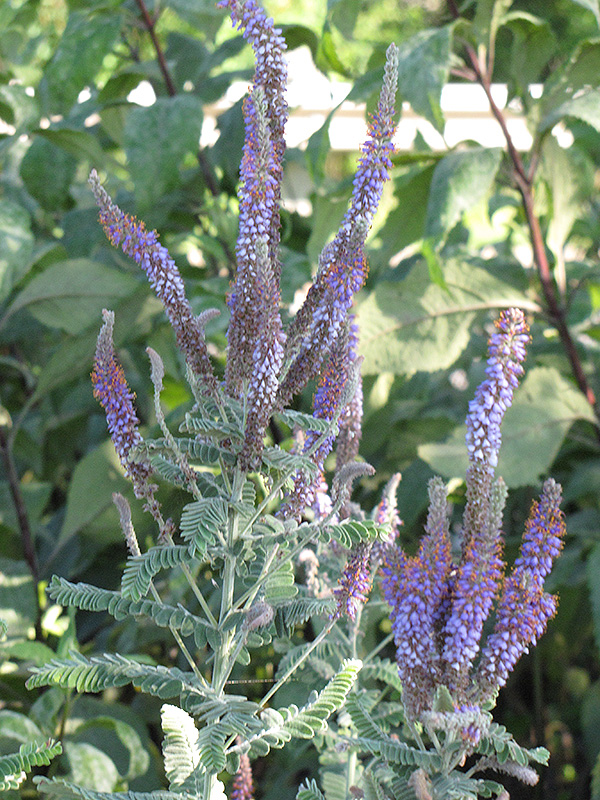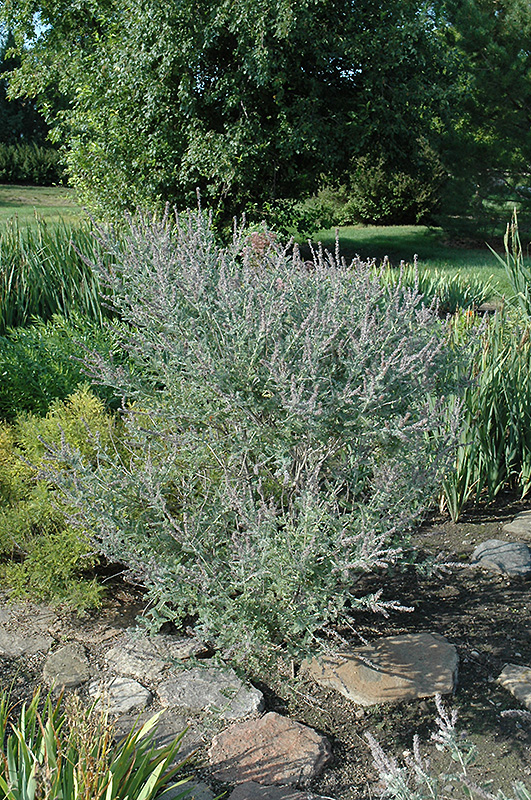Digging deeperPlant Library
Height: 4 feet
Spread: 4 feet
Sunlight:
![]()
Hardiness Zone: 4
Other Names: Buffalo Bellow Plant, Wild Indigo Bush
Description:
Beautiful and unusual massing of tiny contrasting flowers atop ferny foliage, each comprised of a single purple petal and gold stamen, can only be appreciated at close range, attract native butterflies; roots do not like to be disturbed
Ornamental Features
Leadplant has spikes of indigo pea-like flowers with gold anthers rising above the foliage in mid summer, which are interesting on close inspection. It has grayish green deciduous foliage. The small fuzzy narrow pinnately compound leaves do not develop any appreciable fall color.
Landscape Attributes
Leadplant is a multi-stemmed deciduous shrub with an upright spreading habit of growth. It lends an extremely fine and delicate texture to the landscape composition which can make it a great accent feature on this basis alone.
This is a relatively low maintenance shrub, and is best pruned in late winter once the threat of extreme cold has passed. It is a good choice for attracting bees, butterflies and hummingbirds to your yard, but is not particularly attractive to deer who tend to leave it alone in favor of tastier treats. It has no significant negative characteristics.
Leadplant is recommended for the following landscape applications;
- Mass Planting
- Hedges/Screening
- General Garden Use
- Naturalizing And Woodland Gardens
Planting & Growing
Leadplant will grow to be about 4 feet tall at maturity, with a spread of 4 feet. It has a low canopy with a typical clearance of 1 foot from the ground. It grows at a fast rate, and under ideal conditions can be expected to live for approximately 10 years.
This shrub should only be grown in full sunlight. It prefers dry to average moisture levels with very well-drained soil, and will often die in standing water. It is particular about its soil conditions, with a strong preference for poor, alkaline soils, and is able to handle environmental salt. It is somewhat tolerant of urban pollution. This species is native to parts of North America.
A NetPS Plant Finder tool
This Plant Library is for informational purposes only. We may or may not carry the items listed. During many times of the year, we may carry many more plants in our store than are listed in the Plant Library. Please contact us directly at 303-690-4722 or visit our store for current availability and for assistance.

